EMA AWARDS 2023 FOR OUTSTANDING WORK IN THE FIELD OF EARLY MUSIC
As part of Early Music America’s 2023 Summit, held in October in Boston, three musicians received annual awards from the EMA Board of Directors. For 2023, the Summit theme was “Making Connections,” a concept reflected in the choice of winners.
The awards were given in Boston’s historic Emmanuel Church in the City of Boston, right before the Emerging Artists Showcase, the gathering’s final event. On hand to introduce the presenters was EMA Executive Director David McCormick, who thanked Summit participants for their “engaging conversations, wonderful connections, and a lot of growth as a community.”
Thomas Binkley Award
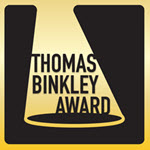
The idea of making connections lies at the heart of the Thomas Binkley Award, which rewards an outstanding leader of an early-music ensemble at the university level. That stage of a musician’s training is essential to developing the habit of seeking out musical, professional, and social attachments, many of which may last an entire career. The award’s namesake is lutenist and educator Thomas Binkley, who pioneered the teaching and recording of early music through his work at the Studio der Frühen Musik in Basel and the Early Music Institute at Indiana University. Joe Chappel, a bass-baritone and EMA Board member, presented the award.
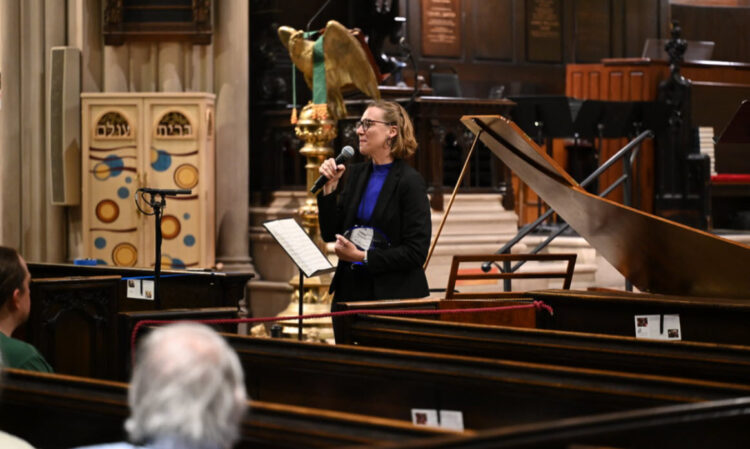
The 2023 Binkley Award recipient is Lindsey Macchiarella, a musicologist on the faculty of the University of Texas at El Paso (UTEP). By founding the UTEP Early Music Ensemble and the UTEP Collegium Musicum, Macchiarella solidified her department’s commitment to early music. Just as noteworthy is her work beyond the university, reaching out to members of the El Paso community through free early-music lectures and recitals in concert halls, libraries, churches, and even bars. She is also the project director of the upcoming Early Music Latin America Festival.
Macchiarella evoked the theme of connection in her written acceptance remarks before the Summit: “What I love most about early music is the community, and I’m so proud to be a part of one as vivid, warm, and inspiring as this one.” When handed the award in person, she added, “I’m really grateful to be a part of this community at this time. It’s an exciting time in early music.”
Laurette Goldberg Award
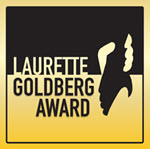
Ruben Valenzuela and Bach Collegium San Diego (BCSD) are the winners of the 2023 Laurette Goldberg Award, named in honor of a longtime educator, harpsichordist, and author who founded MusicSources, an organization devoted to broadening awareness of historical performance. The award recognizes ongoing, outstanding achievement in educational or outreach endeavors by individual performers, teaching artists, or ensembles, and is meant to celebrate projects that bring in new audiences or musicians to early music. On hand to present the award was the 2019 winner, Nina Stern, a clarinetist, recorder player, and EMA board member.
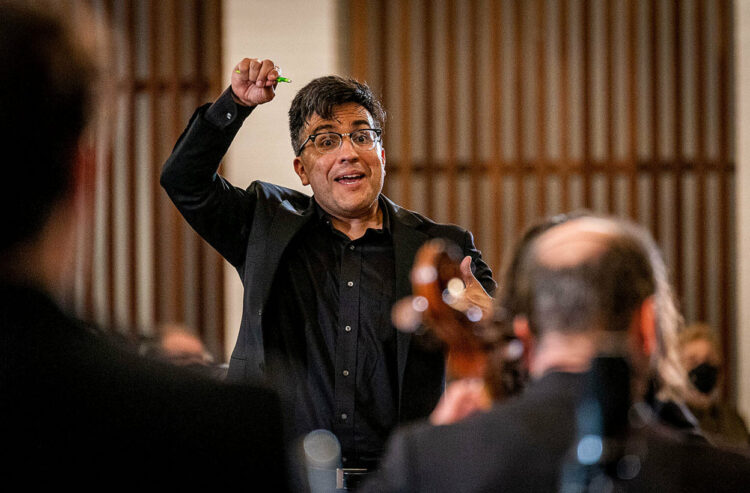
Keyboardist, musicologist, and conductor Valenzuela founded BCSD in 2003 and has served as its only artistic director. His focus with the ensemble has been to find new places to play early music and new people to hear it, a goal very much in keeping with the Summit theme of making connections.
Although Valenzuela was not able to attend the Summit, in a written acceptance he emphasized his group’s outreach: “Throughout the ensemble’s history, BCSD has explored diverse ways in which to engage audiences through educational initiatives, general accessibility, and community involvement.” Among the ensemble’s recent endeavors is its free Bach at Noon series. The El Mesías project, subtitled “Messiah for a New World,” offers bilingual performances of Handel’s Messiah in English and Spanish using a newly commissioned libretto by Mario Montenegro.
Howard Mayer Brown Award
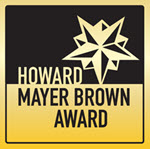
The Howard Mayer Brown Award is intended for a musician who has demonstrated a lifetime’s commitment to improving the field of early music. The namesake of this prize was a University of Chicago musicologist whose scholarly work encompassed every aspect of Renaissance vocal and instrumental music. Brown also conducted groundbreaking research in historical performance practice.
This year’s lifetime achievement award was presented to harpsichordist Arthur Haas, who has uncovered rarities and spread enthusiasm for Baroque music through his celebrated recordings and performances. The presenter, Helen McConnell, is an EMA Board member and was once one of Haas’ harpsichord students.
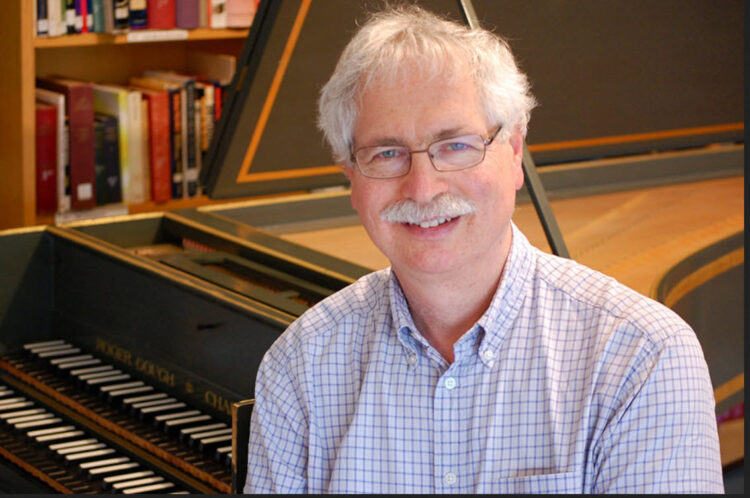
In keeping with the theme of making connections, Haas has a legacy of developing important collaborations with many individuals and groups over the decades. To name only a few: With the Five Centuries Ensemble, he explored the works of Luzzaschi, d’India, and Frescobaldi; he accompanied Dawn Upshaw on a Bach CD; he and William Christie made an album of LeRoux suites. Many of Haas’ recordings have been with the Aulos Ensemble, with whom he played for three decades.
When presented with the award, Haas acknowledged his teachers, “Albert Fuller, Kenneth Gilbert, Gustav Leonhardt, and above all, Alan Curtis.” He mused on an over-arching goal of his musical life: “I have sought to uncover the glorious secrets of early music and combine that with my own 20th- and 21st-century sensibilities. I’ve done this in my own playing, and have always tried to impart these ideals to my students.”
Haas recalled an essential lesson from Alan Curtis that would end up inspiring him to shape his career into a combination of musician and musicologist. Curtis advised him “that playing the harpsichord is not just performance, but also you have to be a scholar to do it.”
He also remembered a vivid scene when he was a graduate student at UCLA, about to play at a Bach conference. Outside the building was musicologist Sol Babitz, picketing with the slogan “No more sewing-machine Bach!” Because of Babitz’s attitude about performance practice, Haas said, “I realized there was really a revolution going on. We were rebels, and I was happy to embrace that culture.”
After more than a half-century in the field, Haas remains as energized as ever. “I still feel I’m a rebel,” he said. “I still feel we have to fight for legitimacy in a way, and I’m totally against the fact that we’re becoming like the establishment. I love the fact that we’re not establishment.” He still values the challenge of “searching for new ways to perform music, looking at old scores that nobody’s looked at, trying to interpret what everything means when nothing’s on the page.”
His acceptance speech ended with encouragement to his colleagues in attendance, a heartfelt gesture of connection: “This feeling of being a revolutionary I think is really important to what we all do in early music. I’m really happy to keep this tradition going, and I hope you all will, too.”
Anne E. Johnson is a freelance writer based in New York. Her arts journalism has appeared in the New York Times, Classical Voice North America, Chicago On the Aisle, and PS Audio’s Copper Magazine. She teaches music theory and ear training at the Irish Arts Center in Manhattan. For EMA, she recently wrote about Salamone Rossi’s ‘Songs of Solomon’ at 400.

